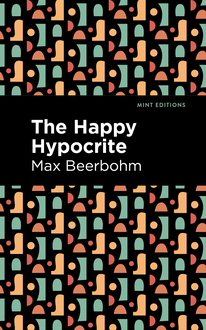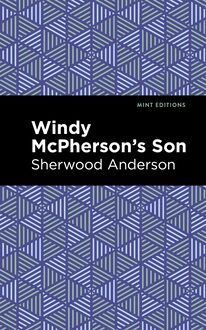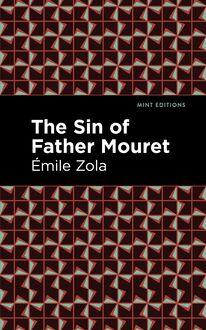-
 Univers
Univers
-
 Ebooks
Ebooks
-
 Livres audio
Livres audio
-
 Presse
Presse
-
 Podcasts
Podcasts
-
 BD
BD
-
 Documents
Documents
-
- Cours
- Révisions
- Ressources pédagogiques
- Sciences de l’éducation
- Manuels scolaires
- Langues
- Travaux de classe
- Annales de BEP
- Etudes supérieures
- Maternelle et primaire
- Fiches de lecture
- Orientation scolaire
- Méthodologie
- Corrigés de devoir
- Annales d’examens et concours
- Annales du bac
- Annales du brevet
- Rapports de stage
La lecture à portée de main
Vous pourrez modifier la taille du texte de cet ouvrage
Découvre YouScribe en t'inscrivant gratuitement
Je m'inscrisDécouvre YouScribe en t'inscrivant gratuitement
Je m'inscrisEn savoir plus
Vous pourrez modifier la taille du texte de cet ouvrage
En savoir plus

Description
For years, Alfred, the eldest son of the Bligh family, has traveled the world like a vagabond. However, since he is a poor communicator, his whereabouts and activities are often left to his family’s imagination. One morning, as the Bligh family gather around their breakfast table, they are no longer left to wonder. Having only sent a letter after his voyage across the ocean, Alfred writes his family a letter to warn them of his arrival, and tells them of an even bigger surprise. While on an Australian adventure, Alfred met the love of his life, Gladys, and promptly married her. Now, the newlywed couple were back in Alfred’s home country of England, and ready to meet the family for the first time. Though Alfred acknowledges that he understands the shock the news might cause, he promises his family that they will love Gladys. However, it is apparent that the young man has overestimated his family’s affection when Alfred and Gladys arrive. Disliking even her name, the Bligh family are unapologetically British, and are convinced that Australians are barbarians. As Gladys tries to fit in and overcome the family’s prejudices, she quickly recognizes faults and hypocrisies in the Bligh's’ distain for her nationality. Partially inspired by E.W Hornung’s own travels to Australia, A Bride from the Bush is a descriptive and comedic tale that exposes the flaws in 19th century British culture through the perspective of an Australian native. With themes of identity and prejudice, A Bride from the Bush remains to be a fresh and relatable dramatic comedy. This edition of author E.W Hornung’s debut novel, A Bride from the Bush, features a new, eye-catching cover design and is reprinted in a modern and readable font. With these accommodations, contemporary readers are encouraged to revisit this classic comedy.
Sujets
Informations
| Publié par | Mint Editions |
| Date de parution | 14 mai 2021 |
| Nombre de lectures | 1 |
| EAN13 | 9781513285641 |
| Langue | English |
| Poids de l'ouvrage | 1 Mo |
Informations légales : prix de location à la page 0,0400€. Cette information est donnée uniquement à titre indicatif conformément à la législation en vigueur.
Extrait
A Bride from the Bush
E.W. Hornung
A Bride from the Bush was first published in 1890.
This edition published by Mint Editions 2021.
ISBN 9781513280622 | E-ISBN 9781513285641
Published by Mint Editions®
minteditionbooks.com
Publishing Director: Jennifer Newens
Design & Production: Rachel Lopez Metzger
Project Manager: Micaela Clark
Typesetting: Westchester Publishing Services
C ONTENTS
I. A L ETTER FROM A LFRED
II. H OME IN S TYLE
III. P INS AND N EEDLES
IV. A T ASTE OF H ER Q UALITY
V. G RANVILLE ON THE S ITUATION
VI. C OMPARING N OTES
VII. I N R ICHMOND P ARK
VIII. G RAN ’ S R EVENGE
IX. E T ENEBRIS L UX
X. P LAIN S AILING
XI. A T HUNDER -C LAP
XII. P AST P ARDON
XIII. A S OCIAL I NFLICTION
XIV. “H EAR M Y P RAYER !”
XV. T HE F IRST P ARTING
XVI. T RACES
XVII. W AITING FOR THE W ORST
XVIII. T HE B OUNDARY -R IDER OF THE Y ELKIN P ADDOCK
XIX. A NOTHER L ETTER FROM A LFRED
I
A L ETTER FROM A LFRED
There was consternation in the domestic camp of Mr. Justice Bligh on the banks of the Thames. It was a Sunday morning in early summer. Three-fourths of the family sat in ominous silence before the mockery of a well-spread breakfast-table: Sir James and Lady Bligh and their second son, Granville. The eldest son—the missing complement of this family of four—was abroad. For many months back, and, in fact, down to this very minute, it had been pretty confidently believed that the young man was somewhere in the wilds of Australia; no one had quite known where, for the young man, like most vagabond young men, was a terribly meagre corespondent; nor had it ever been clear why any one with leisure and money, and of no very romantic turn, should have left the beaten track of globe-trotters, penetrated to the wilderness, and stayed there—as Alfred Bligh had done. Now, however, all was plain. A letter from Brindisi, just received, explained everything; Alfred’s movements, so long obscure, were at last revealed, and in a lurid light—that, as it were, of the bombshell that had fallen and burst upon the Judge’s breakfast-table. For Alfred was on his way to England with an Australian wife; and this letter from Brindisi, was the first that his people had heard of it, or of her.
“Of course,” said Lady Bligh, in her calm and thoughtful manner, “it was bound to happen sooner or later. It might have happened very much sooner; and, indeed, I often wished that it would; for Alfred must be—what? Thirty?”
“Quite,” said Granville; “I am nearly that myself.”
“Well, then,” said Lady Bligh gently, looking tenderly at the Judge (whose grave eyes rested upon the sunlit lawn outside), “from one point of view—a selfish one—we ought to consider ourselves the most fortunate of parents. And this news should be a matter for rejoicing, as it would be, if—if it were only less sudden, and wild, and—and—”
Her voice trembled; she could not go on.
“And alarming,” added Granville briskly, pulling himself together and taking an egg.
Then the Judge spoke.
“I should like,” he said, “to hear the letter read slowly from beginning to end. Between us, we have not yet given it a fair chance; we have got only the drift of it; we may have overlooked something. Granville, perhaps you will read the letter aloud to your mother and me?”
Granville, who had just laid open his egg with great skill, experienced a moment’s natural annoyance at the interruption. To stop to read a long letter now was, he felt, treating a good appetite shabbily, to say nothing of the egg. But this was not a powerful feeling; he concealed it. He had a far stronger appetite than the mere relish for food; the intellectual one. Granville had one of the nicest intellects at the Junior Bar. His intellectual appetite was so hearty, and even voracious, that it could be gratified at all times and places, and not only by the loaves and fishes of full-bodied wit, but by the crumbs and fishbones of legal humour—such as the reading aloud of indifferent English and ridiculous sentiments in tones suitable to the most chaste and classic prose. This he had done in court with infinite gusto, and he did it now as he would have done it in court.
“ ‘My dear Mother’ ” (he began reading, through a single eyeglass that became him rather well),—“ ‘Before you open this letter you’ll see that I’m on my way home! I am sorry I haven’t written you for so long, and very sorry I didn’t before I sailed. I should think when I last wrote was from Bindarra. But I must come at once to my great news—which Heaven knows how I’m to tell you, and how you’ll take it when I do. Well, I will, in two words—the fact is, I’m married ! My wife is the daughter of “the boss of Bindarra”—in other words, a “squatter” with a “run” (or territory) as big as a good many English counties.’ ”
The crisp forensic tones were dropped for an explanatory aside. “He evidently means —father” (Granville nearly said “my lord,” through force of habit), “that his father-in-law is the squatter; not his wife, which is what he says . He writes in such a slipshod style. I should also think he means that the territory in question is equal in size to certain English counties, individually (though this I venture to doubt), and not—what you would infer—to several counties put together. His literary manner was always detestable, poor old chap; and, of course, Australia was hardly likely to improve it.”
The interpolation was not exactly ill-natured; but it was received in silence; and Granville’s tones, as he resumed the reading, were even more studiously unsympathetic than before.
“ ‘Of my Bride I will say very little; for you will see her in a week at most. As for myself, I can only tell you, dear Mother, that I am the very luckiest and happiest man on earth!’ ” (“A brave statement,” Granville murmured in parenthesis; “but they all make it.”) “ ‘She is typically Australian, having indeed been born and bred in the Bush, and is the first to admit it, being properly proud of her native land; but, if you knew the Australians as I do, this would not frighten you. Far from it, for the typical Australian is one of the very highest if not the highest development of our species.’ ” (Granville read that sentence with impressive gravity, and with such deference to the next as to suggest no kind of punctuation, since the writer had neglected it.) “ ‘But as you, my dear Mother, are the very last person in the world to be prejudiced by mere mannerisms, I won’t deny that she has one or two— though, mind you, I like them! And, at least, you may look forward to seeing the most beautiful woman you ever saw in your life—though I say it.
“ ‘Feeling sure that you will, as usual, be “summering” at Twickenham, I make equally sure that you will be able and willing to find room for us; at the same time, we will at once commence looking out for a little place of our own in the country, with regard to which we have plans which will keep till we see you. But, while we are with you, I thought I would be able to show my dear girl the principal sights of the Old Country, which, of course, are mostly in or near town, and which she is dying to see.
Dear Mother,
I know I ought to have consulted you, or at least told you, beforehand. The whole thing was impulsive, I admit. But if you and my Father will forgive me for this—take my word for it, you will soon find out that it is all you have to forgive! Of course, I am writing to my Father as much as to you in this letter—as he will be the first to understand. With dearest love to you both (not forgetting Gran), in which Gladys joins me (though she doesn’t know I am saying so).
Believe me as ever,
Your affectionate Son,
Alfred
“Thank you,” said the Judge, shortly.
The soft dark eyes of Lady Bligh were wet with tears.
“I think,” she said, gently, “it is a very tender letter. I know of no man but Alfred that could write such a boyish, simple letter—not that I don’t enjoy your clever ones, Gran. But then Alfred never yet wrote to me without writing himself down the dear, true-hearted, affectionate fellow he is; only here, of course, it comes out doubly. But does he not mention her maiden name?”
“No, he doesn’t,” said Granville. “You remarked the Christian name, though? Gladys! I must say it sounds unpromising. Mary, Eliza, Maria—one would have rather liked a plain, homely, farm-yard sort of name for a squatter’s daughter. But Ermyntrude, or Elaine, or Gladys! These are names of ill-omen; you expect de Vere coming after them, or even worse.”
“What is a squatter, Gran?” asked Lady Bligh abruptly.
“A squatter? I don’t know,” said Gran, paring the ham daintily as he answered. “I don’t know, I’m sure; something to do with bushranging, I should imagine—but I really can’t tell you.”
But there was a set of common subjects of which Gran was profoundly and intentionally ignorant; and it happened that Greater Britain was one of them. If he had known for certain whether Sydney (for instance) was a town or a colony or an island, he would have kept the knowledge carefully to himself, and been thoroughly ashamed of it. And it was the same with other subjects understanded of the Board-scholars. This queer temper of mind is not indeed worth analysing; nevertheless, it is peculiar to a certain sort of clever young fellows, and Granville Bligh was a very fair specimen of the clever young fellow. He was getting on excellently at the Bar, for so young a man. He also wrote a little, with plenty of impudence and epigram, if nothing else. But this was not his real line. Still, what he did at all, he did more or less cleverly. There was cleverness in every line of his smooth dark face; there was uncommon shrewdness in his clear gray eyes. His father had the same face and the same eyes—with this difference added to the differences naturally due to age: there were wisdom, and dignity, and humanity in the face and glance of the Judge; but the nobility of expression thus given was not inherited by
-
 Univers
Univers
-
 Ebooks
Ebooks
-
 Livres audio
Livres audio
-
 Presse
Presse
-
 Podcasts
Podcasts
-
 BD
BD
-
 Documents
Documents
-
Jeunesse
-
Littérature
-
Ressources professionnelles
-
Santé et bien-être
-
Savoirs
-
Education
-
Loisirs et hobbies
-
Art, musique et cinéma
-
Actualité et débat de société
-
Jeunesse
-
Littérature
-
Ressources professionnelles
-
Santé et bien-être
-
Savoirs
-
Education
-
Loisirs et hobbies
-
Art, musique et cinéma
-
Actualité et débat de société
-
Actualités
-
Lifestyle
-
Presse jeunesse
-
Presse professionnelle
-
Pratique
-
Presse sportive
-
Presse internationale
-
Culture & Médias
-
Action et Aventures
-
Science-fiction et Fantasy
-
Société
-
Jeunesse
-
Littérature
-
Ressources professionnelles
-
Santé et bien-être
-
Savoirs
-
Education
-
Loisirs et hobbies
-
Art, musique et cinéma
-
Actualité et débat de société
- Cours
- Révisions
- Ressources pédagogiques
- Sciences de l’éducation
- Manuels scolaires
- Langues
- Travaux de classe
- Annales de BEP
- Etudes supérieures
- Maternelle et primaire
- Fiches de lecture
- Orientation scolaire
- Méthodologie
- Corrigés de devoir
- Annales d’examens et concours
- Annales du bac
- Annales du brevet
- Rapports de stage
















